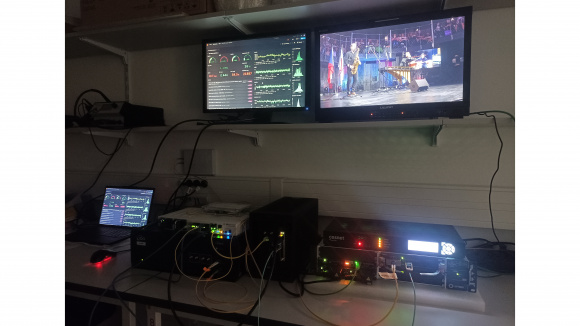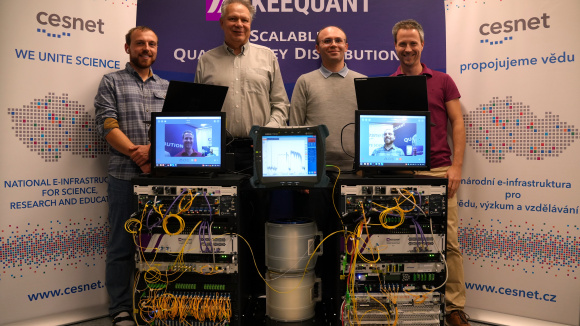Stay in the know
News
12. February 2026
Seminář bezpečnostních sítí a služeb 2026 shrnul aktuální kyberbezpečnostní témata
Tradiční únorový seminář zaměřený na kybernetickou bezpečnost se letos poprvé uskutečnil ve dvoudenním formátu. Rozšířený program reagoval na dlouhodobý zájem účastníků nejen o technická témata, ale také o otázky legislativy, regulace a strategického řízení bezpečnosti.
11. February 2026
Optické přenosy dat, času, senzoriky a QKD na SPIE Photonics West 2026 a PITI 26
Pracovníci sdružení CESNET na prestižní globální konferenci SPIE Photonics West 2026 představili nejnovější výsledky výzkumu zaměřeného na koexistenci různých typů signálů v jednom optickém vlákně. Jan Radil prezentoval přenos vysokorychlostních koherentních signálů, páteřní propojení internetu, a nové typy aplikací využívajících pomalejší signály. Typickým příkladem je využití te12. January 2026
CESNET Among the Leading Contributors to the Suricata Project
The CESNET association has long ranked among the most significant contributors to the globally used open-source system Suricata, which is designed for network attack detection and prevention. At the international Suricon 2025 conference in Montreal, our researcher Adam Kiripolský presented a set of innovations that significantly boost Suricata’s performance, primarily through deeper integration of hardware-accelerated network traffic processing.
6. January 2026
Co vás čeká na únorovém Semináři o bezpečnosti sítí a služeb 2026
Řešili jste v poslední době bezpečnostní problém, na který neexistovala jednoznačná odpověď? Na Seminář o bezpečnosti sítí a služeb 2026 se dozvíte, jak podobné situace řeší ostatní v reálném provozu, co se jim osvědčilo nebo jaké kompromisy museli udělat. Oblíbená komunitní akce se koná 10.–11. února 2026 v hotelu Pyramida v Praze a vůbec poprvé proběhne ve dvoudenním formátu. Ten nabídne víc18. December 2025
Quantum-secure transmission at 100 Gb/s in a live network
Pracovníci sdružení CESNET ověřili v rámci projektu NESPOQ, že kvantová distribuce klíčů (QKD) a postkvantová kryptografie (PQC) mohou spolehlivě chránit datové přenosy na 100Gb/s provozní lince v reálném síťovém prostředí. Na provozní trase dlouhé 9,1 km mezi laboratoří CESNET TLH a pražskou DC Tower prokázali, že kombinace QKD systému IDQ Clavis3 a šifrovacích jednotek vyvinutých na Vysokém učení technickém v Brně (VUT) dokáže zajistit bezpečný přenos i u náročných multimediálních a velkoobjemových dat.
10. December 2025
Quantum Security Moves Closer: CESNET Validates a New Generation of Data Encryption
Secure communication between computers is fundamental to today's digital world. With quantum computers soon capable of breaking current encryption methods, it is essential to find new ways to protect data. One such method is quantum key distribution (QKD), a technology that uses the principles of quantum physics to reliably exchange encryption keys.






